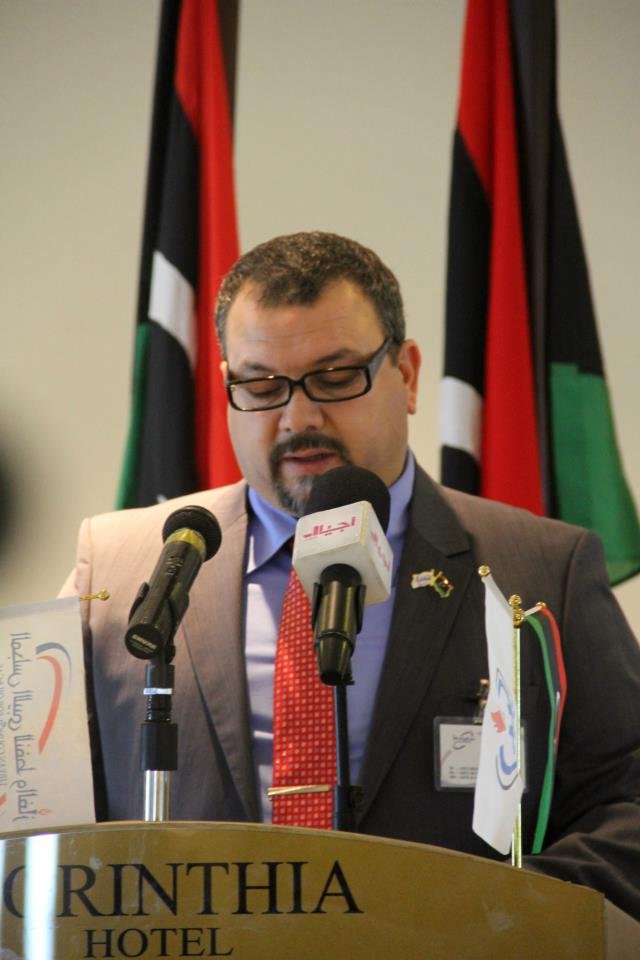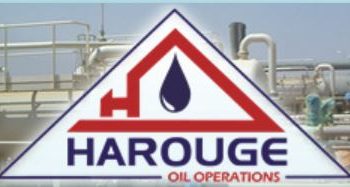By Sami Zaptia.

Tripoli, 12 February 2013:
The Libyan Oil Minister Abdulbari Al-Arusi and NOC head Nuri Berreuien met on 27th January with . . .[restrict]the Libyan Council of Oil and Gas (LCOG), a private sector lobby group that represents Libyan companies dealing with the hydrocarbon sector and part of the Libyan Businessmen Council.
The meeting which included the Deputy Oil Minister, members of the NOC Board as well as its legal councel, was held at the Ministry of Oil in Tripoli and lasted for nearly three hours.
The LCOG had called for the meeting in order to give its members an opportunity to discuss ways in which dealings between the state oil sector and the private sector could be improved. About 25 companies from all over Libya attended and a lively and frank debate ensued.
In his welcoming remarks Oil Minister Arusi said that he wanted “to learn from the private sector. We are convinced it’s the way forward and that it will create thousands of jobs. We want to listen to you”, he added.
“The hydrocarbon sector is part of the private sector because today we are employees (civil servants) and tomorrow we may go back to the private sector”, the Minister said, hinting of his awareness that his government is transitional government and that he might be back in his old job soon.
“We want the private sector to be effective and transparent. When there is a demand for technical competence, you have to be technically qualified to be able to tender for contracts. When it is critical type of projects that are on tender, technical work and quality and technical know-how and international standards are important” Arussi warned.
“We are aware that foreign companies are getting work Libyan companies can execute. I will encourage Libyan companies – but not at expense of technical know-how and qualifications and competence”, he declared.
“I will come hard on anyone or any company that engages in corruption and I will stand with companies that are hard done by any of the NOC companies”, the Oil Minister concluded in his opening remarks.
NOC head Nuri Berreuien on his part referred to the last meeting with the LCOG saying that ”all things being equal, local companies should get a fair share of work especially the straight forward non-technically demanding type of work”.
“The budget is going to be approved soon. Last year we were unable to activate it”, the NOC head admitted. “This year it is your chance in view of the absence of many foreign companies and I hope you can take this opportunity to take your share of work”, he concluded.
There then followed a question and answer session and an honest debate and discussion of a thirteen-point agenda presented in advance to the Oil Ministry and the NOC by the LCOG.
These were:
- Giving priority to local companies for tenders for projects then to JV companies then to out-and-out foreign-owned companies.
- Imports of goods for project tenders should be through the local agent/distributor for that brand.
- More transparency in the tendering process by NOC subsidiary companies.
- NOC training and development should be done through local training companies rather than directly via foreign-based companies.
- Increasing the rate of business given by the hydrocarbon sector to local companies, and ways to encourage the local sector to improve its capabilities and its local human resource capabilities and helping make the local sector more shielded from international trends.
- Enforcing law no (433) which limits the role and scope of work of foreign companies to Joint Venture projects and within the confines of the Joint Venture laws and regulations.
- Preventing foreign companies from participating in some tenders or projects which should be set aside solely for local companies.
- Tenders of equal technical specification but of 15% price difference should be given to local companies.
- Evaluating local Libyan companies on the basis of the experience of their Directors/Managers and not just the length of establishment of the company.
- Giving financial and other incentives to foreign companies that bid for large projects in a joint venture with a Libyan company as opposed to those that bid on their own.
- Making use of the experience of retired Libyan experts in the hydrocarbon field.
- All imports of equipment/parts used by the Libyan hydrocarbon sector should be imported into Libya through a locally-based Libyan company.
- Ensuring that companies only get allocated tenders they are licenced for.
For more details contact www.lcog.ly [/restrict]







